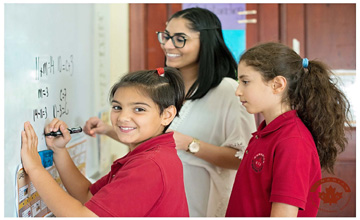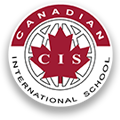EXPECTATIONS OF STUDENTS
1. Students are expected to behave responsibly in and out of school and to consider themselves as representatives of the school and its traditions at all times.2. School property is to be respected.
3. Students will display good manners at all times, and be courteous to each other as well as staff members and visitors to the school.
4. Students are expected to be punctual and present for all classes unless ill.
5. The completion of all assigned schoolwork is the responsibility of the student. This means being organized, making good use of class time, completing all assigned homework, asking for help when necessary, and completing any missed assignments due to being absent.
6. While on school property students must remain in designated areas, as determined by members of staff.
7. Adherence to the uniform code is required during the school day and when representing the school. Students are expected to wear the school uniform properly at all times, unless informed otherwise by the school.
8. Students are expected to comply with the directions of administrators, teachers, student teachers, teacher assistants and other authorized school personnel.
9. Students are expected to move in a safe manner while in the school. We expect students to walk—not run—when moving within the building.
10. Students are strongly urged not to bring personal valuables to school. Please be aware that it is the sole responsibility of each student to care for personal items. The school is NOT responsible for lost or stolen items.
11. Students and parents are expected to respect and celebrate personal, cultural, and religious differences.

Optimum learning takes place only when students approach their work with intention and integrity. It is vital, therefore, that students are aware of situations that may arise whereby they are tempted to act dishonestly and of the consequences of these acts. In order to prevent situations where cheating or plagiarizing may take place, students will learn how to properly document sources (e.g. bibliography, endnotes, quotations) and will be taught effective study skills. Parents should also take care that when helping their students with projects, assignments, etc. that they encourage their students to do their own work and resist the temptation to do it for the student. Part of learning is making mistakes—it is important to allow your children to make them too!
Appropriate consequences (academic penalties, etc.) will apply to acts of plagiarism, cheating, collusion, or other acts through which a student unfairly misrepresents his/her effort or achievement.
“Plagiarism” occurs when a student knowingly represents any idea or work of another person in any academic assignment, test, or examination as his or her own.
“Cheating” occurs when a student obtains an unfair advantage over other students in the context of reparation or performance of any academic assignment, test, or examination.
“Collusion” occurs when a student knowingly allows his or her work to be submitted by another student.


